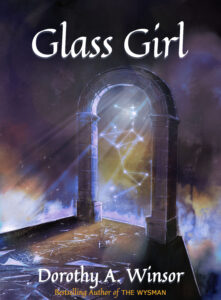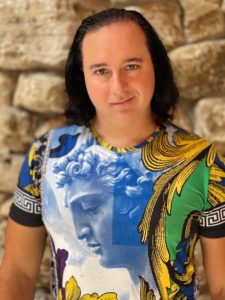by Dorothy Winsor
 Book ideas don’t always (often? ever?) leap into a writer’s mind full-blown. Sometimes disparate bits of a book have to be assembled like the parts of a stained-glass window. The idea for my new book, Glass Girl, came together in three pieces.
Book ideas don’t always (often? ever?) leap into a writer’s mind full-blown. Sometimes disparate bits of a book have to be assembled like the parts of a stained-glass window. The idea for my new book, Glass Girl, came together in three pieces.
Piece One: A Factory Run by Women
The first inkling of this book came from a story on NPR. In a factory somewhere in Latin America, the workers (all women) protested when the owner cut their wages. In answer, he flung the key on the floor and told them they should pick it up and see if they could do better. So, they did. When they made the factory profitable, he, of course, wanted it back.
I was immediately captivated by the idea of the feminine world inside the factory, and it’s always satisfying to see the underdog triumph. It was a beginning I could work with.
But I write traditional fantasy set in a pre-industrial world. In that kind of setting, most work was done in people’s homes. So, what could I use for my factory? At that point, I remembered a long-ago trip to the island of Murano in the Venice lagoon. Murano has been known for its marvelous glass for centuries. Glass making was so important to the city that glass makers were rewarded with high social status. Less happily, they were forbidden to leave. I borrowed both those ideas for Glass Girl. More important for the first piece of my idea, glass making requires furnaces and big equipment. That is, it requires a factory. Voila!
Piece Two: A Dragon!
So, the book is set among all women crafters in a glass making factory on an island. As the island took shape in my mind, though, I realized I was picturing it as volcanic. The volcano had been dormant as long as people could remember, so what did my characters think was the source of the occasional wisps of smoke from the mountain top? Maybe I’d been watching too much “Game of Thrones,” but I decided they believe it’s a sleeping dragon. Everything should matter in a book, though, so I didn’t want to just toss in a random dragon. As I thought about that, I realized I could use dragons in a way I hadn’t seen before.
The sleeping dragon could be a visionary who worked through shared dreams. My characters could be artists in glass whose work was inspired by the dragon, meaning it was sacred. This link mattered because it gave a whole new significance to the struggle to save the factory from a feckless owner.
Piece Three: A Murder
At that point, I had a glassworks engaged in dragon-inspired art and a struggle to save it. Sadly, I concluded that wasn’t compelling enough to shape a whole book. What to do? There used to be a literary agent—Miss Snark–on line who gave writing advice. When a story dragged, Miss Snark would urge: “Kill someone! Set someone’s hair on fire!”
I chose the former option. I killed the central character’s mother, who is also the glassworks craft mistress. Well, I didn’t, but someone did, and seventeen-year-old Emlin decides to find out who it was.
Weight is given to her search by her grief, but also by the fact that since her mother was craft mistress, her murder offended the dragon. It was sacrilege.
The Pieces Assembled
So my story about women winning control of a factory had become about women making glass inspired by a dragon. Their art and their connection to the dragon are so important that the murder of the craft mistress threatens the social order. All that added up an idea for Glass Girl in which everything fit together and each piece added to the others like tessera, creating a story that was dramatically different from any of the original ideas.
Between learning about medieval glass making, writing about a dragon, and plotting a murder, I had a lot of fun writing this book. A book idea doesn’t always leap into the writer’s mind full blown. Sometimes the pieces have to be assembled.
Glass Girl is out May 6, the same day as the coronation. It’ll be House of Windsor vs. House of Winsor. Choose wisely. 😊
Amazon https://www.amazon.com/Glass-Girl-Dorothy-Winsor-ebook/dp/B0C3T2Y961/
B & N https://www.barnesandnoble.com/w/glass-girl-dorothy-a-winsor/1143392406?ean=9781913117214
Facebook https://www.facebook.com/dorothy.winsor


 Book ideas don’t always (often? ever?) leap into a writer’s mind full-blown. Sometimes disparate bits of a book have to be assembled like the parts of a stained-glass window. The idea for my new book, Glass Girl, came together in three pieces.
Book ideas don’t always (often? ever?) leap into a writer’s mind full-blown. Sometimes disparate bits of a book have to be assembled like the parts of a stained-glass window. The idea for my new book, Glass Girl, came together in three pieces.
